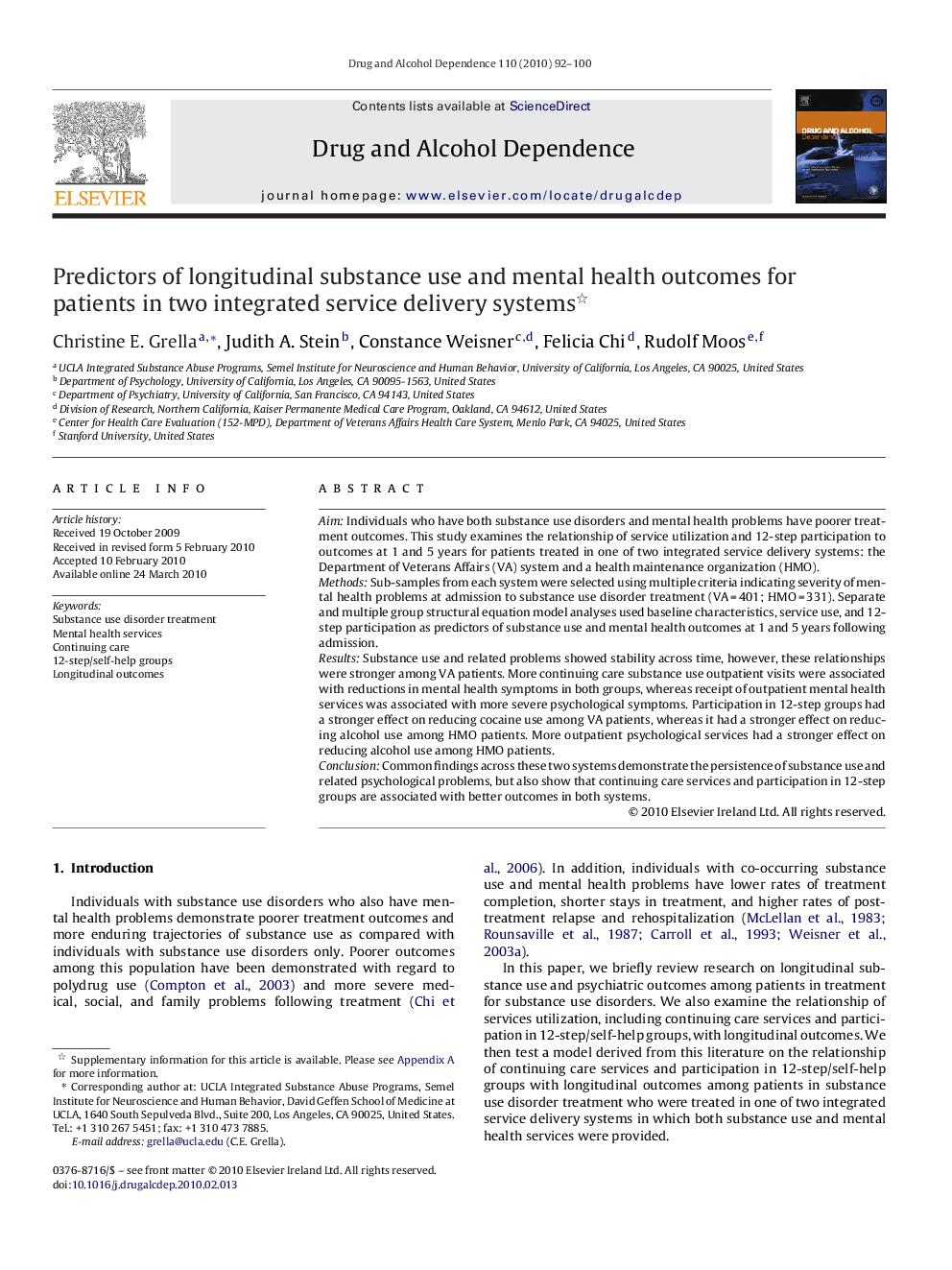| Article ID | Journal | Published Year | Pages | File Type |
|---|---|---|---|---|
| 1070688 | Drug and Alcohol Dependence | 2010 | 9 Pages |
AimIndividuals who have both substance use disorders and mental health problems have poorer treatment outcomes. This study examines the relationship of service utilization and 12-step participation to outcomes at 1 and 5 years for patients treated in one of two integrated service delivery systems: the Department of Veterans Affairs (VA) system and a health maintenance organization (HMO).MethodsSub-samples from each system were selected using multiple criteria indicating severity of mental health problems at admission to substance use disorder treatment (VA = 401; HMO = 331). Separate and multiple group structural equation model analyses used baseline characteristics, service use, and 12-step participation as predictors of substance use and mental health outcomes at 1 and 5 years following admission.ResultsSubstance use and related problems showed stability across time, however, these relationships were stronger among VA patients. More continuing care substance use outpatient visits were associated with reductions in mental health symptoms in both groups, whereas receipt of outpatient mental health services was associated with more severe psychological symptoms. Participation in 12-step groups had a stronger effect on reducing cocaine use among VA patients, whereas it had a stronger effect on reducing alcohol use among HMO patients. More outpatient psychological services had a stronger effect on reducing alcohol use among HMO patients.ConclusionCommon findings across these two systems demonstrate the persistence of substance use and related psychological problems, but also show that continuing care services and participation in 12-step groups are associated with better outcomes in both systems.
